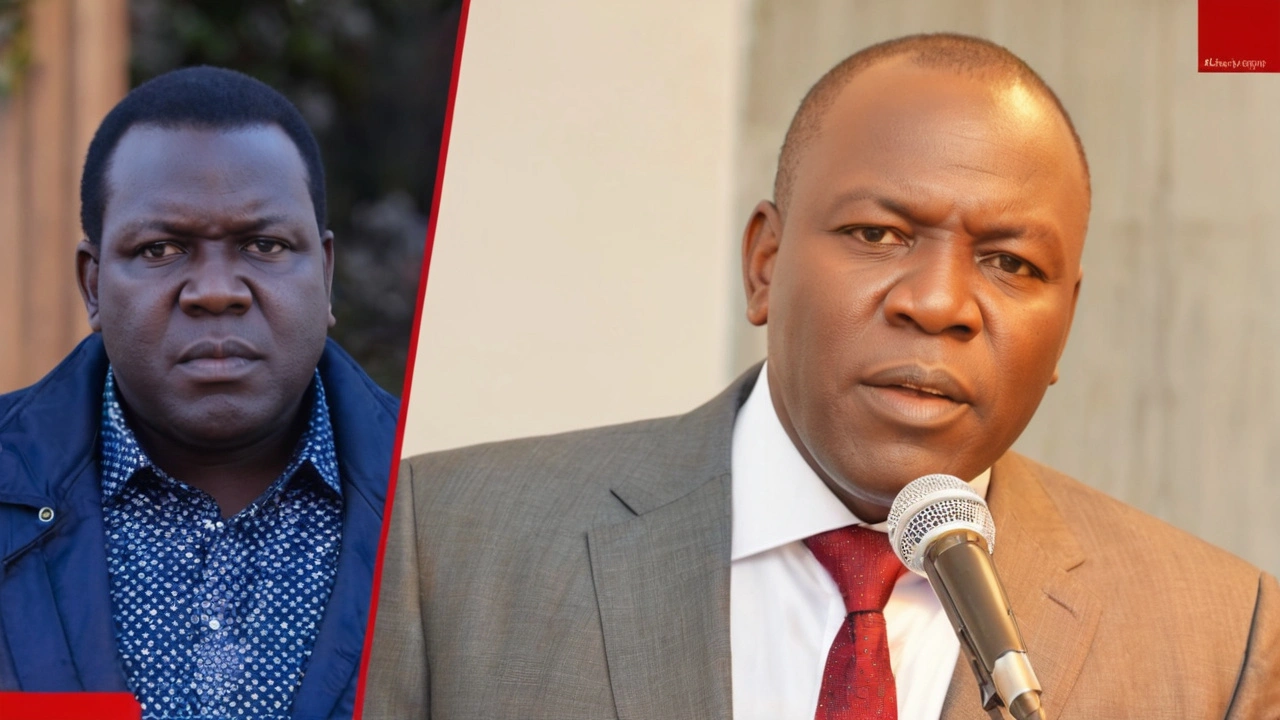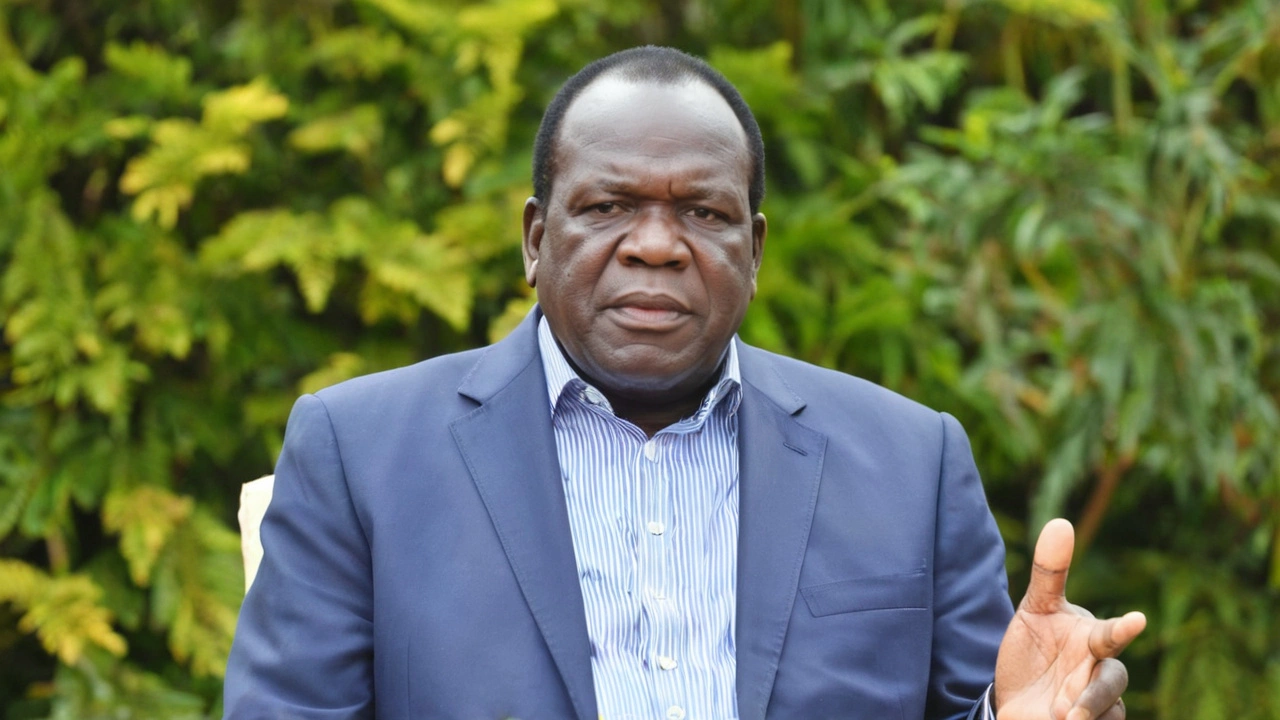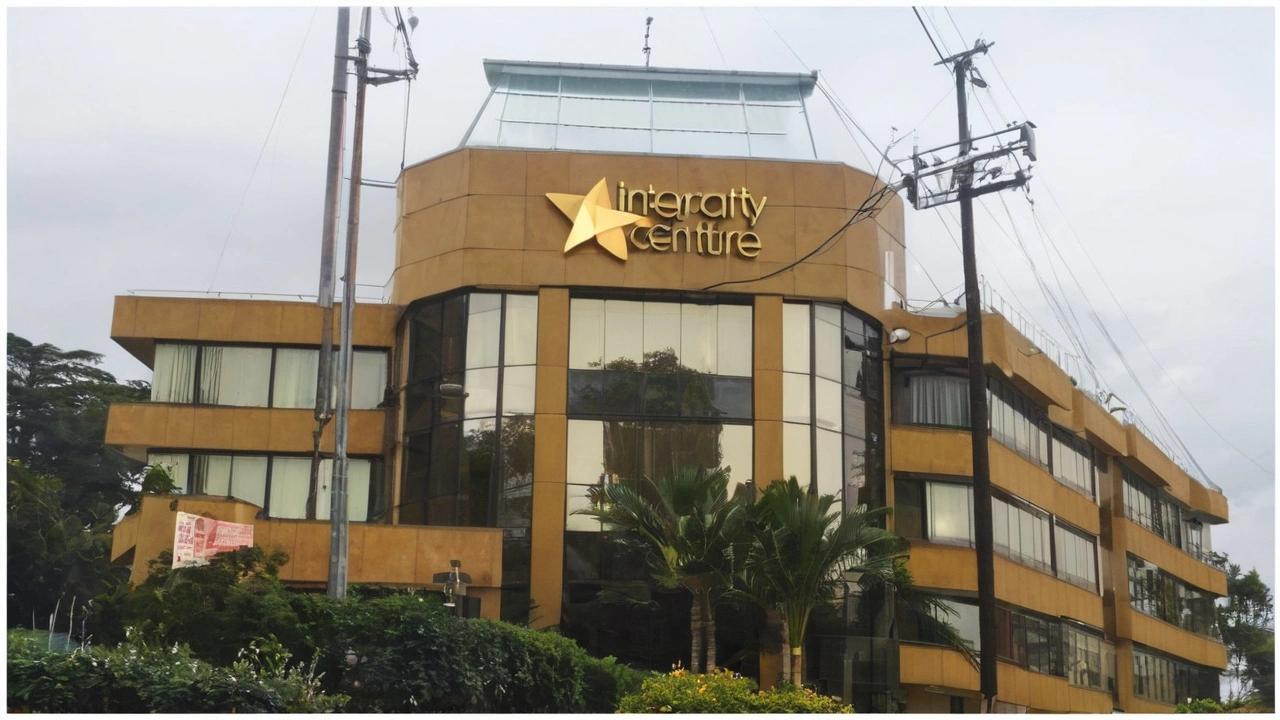Introduction
The recent furor surrounding Wycliffe Oparanya's nomination for Cabinet Secretary has drawn significant public attention. Allegations that the Ethics and Anti-Corruption Commission (EACC) had refused to clear him have created ripples in Kenya's political landscape. This article delves into the EACC's official stance, clarifies its role, and explores the broader implications for Oparanya's future.
EACC's Statement and Clarification
The EACC has categorically denied any refusal to clear Wycliffe Oparanya for his Cabinet Secretary nomination. In an official statement, the Commission emphasized that it does not possess the mandate to clear or bar individuals from holding public office. This responsibility, they stressed, lies solely with the Parliamentary Vetting Committee.
The Commission clarified its role as an information provider regarding the integrity status of candidates. Their integrity vetting process involves gathering and presenting factual data which is then handed over to the Parliamentary Vetting Committee. It is then up to this committee to interpret and utilize the information provided to make an informed decision.
The Integrity Vetting Process
The EACC conducts a meticulous integrity vetting process for all Cabinet Secretary nominees. This process is designed to ensure that individuals being considered for such high-profile roles are subjected to rigorous scrutiny. However, it is crucial to note that the EACC's role ends there. They do not pass any judgment on the suitability of the candidates; instead, they offer a clear and factual report on the integrity status of each nominee as of the relevant date.
The Broader Context: Oparanya's Legal Troubles
Wycliffe Oparanya's nomination is further complicated by his legal entanglements. There are ongoing discussions regarding his alleged involvement in the embezzlement of Sh1.3 billion from the Kakamega County government during his tenure. The EACC has communicated with the Director of Public Prosecutions (DPP) about a change of stance on prosecuting Oparanya, indicating a broader and more intricate legal issue at play.
The timing of these allegations coming to the forefront is crucial as Oparanya faces the National Assembly Appointments Committee for vetting on Sunday, August 4, 2024. It remains to be seen how these allegations will influence the committee's decision and, by extension, Oparanya's political journey.

The Role of the Parliamentary Vetting Committee
The Parliamentary Vetting Committee plays a pivotal role in the clearance process for public office holders in Kenya. This committee is tasked with evaluating the integrity reports provided by the EACC and making informed decisions on whether nominees meet the required integrity standards. It is within their jurisdiction to consider the implications of any ongoing legal cases or allegations against a nominee.
Given Oparanya's upcoming vetting session, the committee's decision will be closely watched by many. It will provide a litmus test for how allegations and legal issues are weighed in the vetting process for high-profile governmental roles.
Public and Political Reactions
The public and political reactions to these developments have been diverse. Some factions argue that the mere existence of allegations should disqualify Oparanya from holding any public office, while others believe in the principle of 'innocent until proven guilty' and argue that legal matters should be resolved independently of political appointments.
Political analysts have pointed out that this situation underscores the challenges of balancing legal integrity with the need for capable leadership in public office. It highlights the complexity of vetting processes in environments where allegations can have significant political ramifications.
Historical Perspective on Integrity Vetting
Kenya's integrity vetting process has evolved over the years, shaped by numerous political and legal milestones. The country's commitment to transparency and accountability in public office has led to the establishment of bodies like the EACC. However, the effectiveness of these bodies often hinges on the interplay between providing factual integrity data and the political will to act on it.
Historically, there have been instances where high-profile nominees have faced integrity vetting challenges but eventually secured their positions due to political maneuvering or legal exonerations. This backdrop provides context to understand the current scenario surrounding Oparanya.
Implications for Governance and Public Trust
The outcome of Wycliffe Oparanya's vetting process will have broader implications for governance and public trust in Kenya. If the vetting committee clears him despite the allegations, it may raise questions about the stringency and effectiveness of integrity vetting processes. Conversely, if he is barred from holding the position, it could set a precedent on how integrity issues are handled in future nominations.
Public trust in governance hinges on the perception of fairness and accountability. The vetting process serves as a litmus test for these principles. It underscores the need for a delicate balance between legal scrutiny, political decision-making, and the broader interests of national governance.

Conclusion
As the vetting date approaches, the political and public spotlight remains firmly fixed on Wycliffe Oparanya and the EACC's integrity vetting process. The outcome will not only determine Oparanya's immediate political future but also set a precedent for how similar cases are handled in Kenya's ongoing journey towards transparent and accountable governance.
The EACC's role as an information provider is clear, but the ultimate decision-making power lies with the Parliamentary Vetting Committee. As such, the committee's assessment approach and final decision will be crucial in shaping public perception and trust in Kenya's political and judicial processes.

Sheri Engstrom
August 4, 2024 AT 00:38The epistemological framework employed by the EACC in its integrity vetting apparatus is ostensibly predicated upon a proceduralist paradigm that ostensibly obfuscates accountability through a boondoggle of bureaucratic semantics. The purported demarcation of jurisdictional prerogatives between the Commission and the Parliamentary Vetting Committee is articulated in a lexicon that smacks of institutional equivocation, thereby engendering a dissonance that is antithetical to transparent governance. Moreover, the alleged conflation of "information provision" with "clearing" is a semantic fallacy that betrays a deeper systemic malaise rooted in regulatory capture. One must scrutinize the veracity of the Commission's statements with a forensic rigor that transcends superficial press releases, lest the public discourse devolve into a vacuous echo chamber. The chronicity of corruption allegations, particularly the Sh1.3 billion embezzlement claim, warrants a concomitant forensic audit that the current procedural veneer fails to address adequately. In addition, the jurisprudential implications of delegating final adjudication solely to the Parliamentary Vetting Committee introduce a potential conflict of interest that is reminiscent of past patronage networks. The article's exposition fails to interrogate the incentive structures that might incentivize selective enforcement, thereby perpetuating a cycle of impunity. From a regulatory compliance perspective, the EACC's self-imposed limitation to data aggregation does not absolve it of ethical responsibility to flag substantive red flags. Consequently, the narrative that the Commission is merely a "data conduit" is, at best, a reductive oversimplification that undermines the gravity of the allegations. The temporal proximity of the vetting date to the public outcry further accentuates the political calculus inherent in the process. It is incumbent upon civil society actors to demand a more granular disclosure of the integrity metrics employed, including the weighting algorithms and threshold criteria. Absent such transparency, the procedural architecture remains an inertial mechanism susceptible to manipulation. The interlocutory communications between the EACC and the DPP, as mentioned, are indicative of a strategic pivot that may reflect prosecutorial discretion rather than evidentiary sufficiency. This nuance is insufficiently explored in the current discourse. Ultimately, the integrity of Kenya's democratic institutions hinges upon a confluence of substantive scrutiny, procedural fidelity, and an unwavering commitment to accountability, none of which can be achieved through perfunctory statements alone.
Prudhvi Raj
August 4, 2024 AT 21:33Think of the EACC as a data‑hub, not a gatekeeper – they just hand over facts to the vetting panel, plain and simple.
jessica zulick
August 5, 2024 AT 18:40While the process may appear labyrinthine, it also reflects a commitment to due diligence that, if executed with fairness, can reinforce public trust and showcase Kenya’s dedication to transparent governance. The EACC’s role as an information conduit, though limited, provides a factual foundation for the Parliamentary Vetting Committee’s deliberations. Ultimately, a balanced outcome will hinge on the interplay between legal evidence and political prudence, a dynamic that underscores the complexity of modern governance.
Partho A.
August 6, 2024 AT 15:46The procedural rigor outlined in the article underscores the importance of methodical assessment, and such diligence serves as a cornerstone for institutional credibility; therefore, stakeholders should observe the developments with measured anticipation.
Jason Brown
August 7, 2024 AT 12:53The EACC’s declarative posture, delineated with meticulous lexical exactitude, ostensibly abdicates any adjudicative authority, thereby relegating the substantive judgment to the parliamentary vetting apparatus-a stratagem that, while procedurally orthodox, may engender a perception of systemic aloofness.
Heena Shafique
August 8, 2024 AT 10:00It is profoundly amusing that the Commission extends its modest remit to “information provision” while the real power resides elsewhere, a tableau that eloquently illustrates the artful dance of bureaucratic evasion that pervades our polity.
Patrick Guyver
August 9, 2024 AT 07:06Yo, the whole thing smells like a set‑up – the ACC cant even clear Oparanya cuz the real puppeteers in the backroom are pulling strings, and the vetting committee? Just a front for the same old power game, bro.
Jill Jaxx
August 10, 2024 AT 04:13Let’s hope the vetting committee digs deep and makes a decision that reflects both integrity and the public’s expectations.
Jaden Jadoo
August 11, 2024 AT 01:20The shadow of doubt looms, yet truth remains the relentless tide.
Traci Walther
August 11, 2024 AT 22:26Super excited for the vetting outcome!!! 🌟🌍✨ Let’s keep the conversation positive and supportive!!! 😃💬🙏
Ricardo Smalley
August 12, 2024 AT 19:33Ah, the classic saga where “information providers” stand aloof while the grand arbiters decide fate-perhaps next time we’ll get a brochure explaining the magic behind “integrity metrics,” complete with sparkle and a guarantee that no one ever bends the rules.